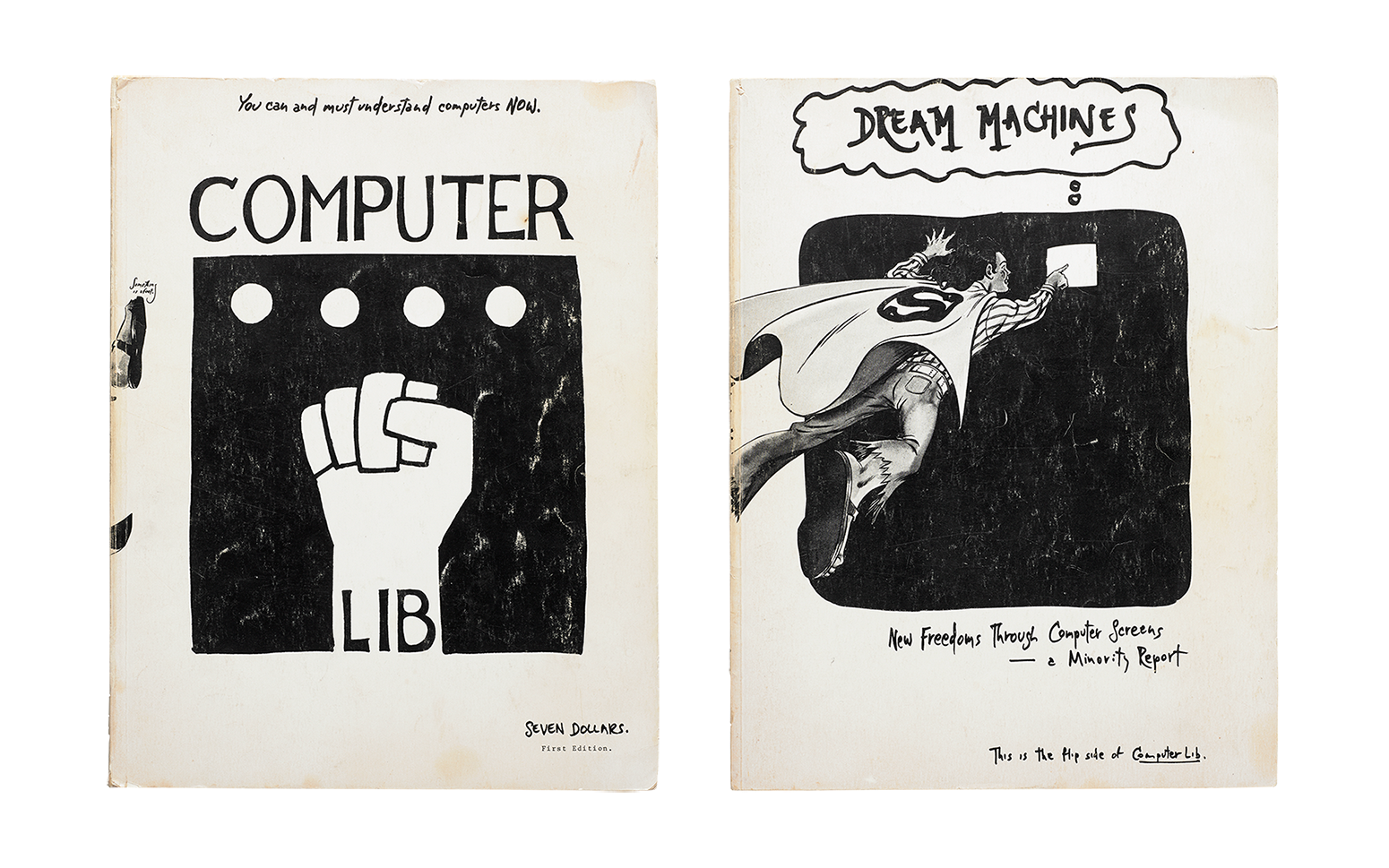Computer Lib ∕ Dream Machines
27 Feb 2022 - 24 Sep 2025
I first got into this as a writer; all I wanted was a decent writing system that would run on a computer. Little did I realize the immensity of what that entailed, or that for some reason my work and approach would engender indignation and anger wherever I went. There is a fiction that everybody in these fields is doing something fundamentally scientific and technical, an d this fiction is usually upheld in carefully enacted mutual playlets. Trying to cut through that and say , "Let's build a home for mankind that will at last be shaped to fit man's mind, " does not seem to generate immediate warmth and welcome.
- This article was not too bad but rather negative about Ted's character and subtly distorting Your Review: Project Xanadu - The Internet That Might Have Been so I commented:
- One correction: You say "Computer Lib was his lamentation over the industry’s disdain for hypertext, and Dream Machines was Xanadu’s manifesto." I don't think that's an accurate summary, of either section.
- *Computer Lib (You can and must understand computers NOW)* was intended as an overview of computer technology for non-technologists, including sections on programming languages, data structures, machine architecture, early hacker groups, and much more. The format and attitude was similar to the Whole Earth Catalog: look at all this cool stuff. Some strong opinions and even some lamentations, but that was not the dominant message.
- *Dream Machines (New Freedoms Through Computer Screens)* was about the research frontier of interfaces and visions for human/computer interaction, of which Xanadu was just one example, It included eg very early CGI, real-time image processing, and ELIZA. It was not that different in form from the other section, just more forward looking.
- I am not very objective about this book which had an enormous influence on me. I encountered it when it first came out, in 1975 or so. This was before the first personal computers were available and before there was any real mainstream idea that normal people should be interacting with computers at all. Both sections conveyed an irresistible air of excitement and revolution, and the idea that technology might actually be wrested from its military/corporate origins and put to humanistic uses. So, yes Ted Nelson may have some character issues and be not very good as a system builder, but he deserves enormous credit for his ideas and writing.
